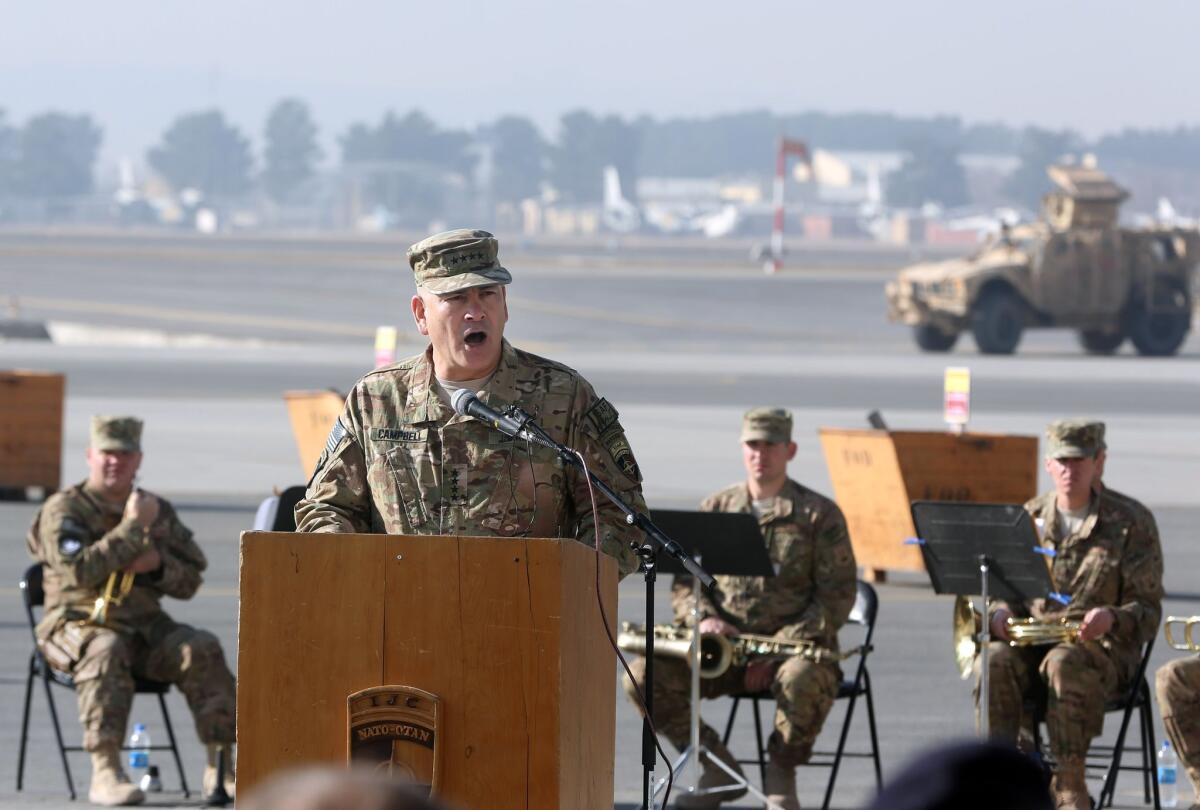Editorial: A new shroud on spending in Afghanistan

For six years, the office of the Special Inspector General for Afghanistan Reconstruction, which audits U.S. spending in the war-ravaged country, has submitted quarterly public reports to Congress drawn from records provided by the U.S.-led coalition supporting the still-shaky Afghan government. The reports are a crucial component of public accountability, both in terms of informing Americans how taxpayer dollars are being spent and as a backstop against inefficiency, mismanagement, fraud and corruption.
But in a curious policy change, the coalition now deems “classified” a wide range of information it formerly provided openly to the inspector general. The quarterly assessments continue to be delivered to Congress — the most recent was released last week — but the now-secret details are included in a separate section that will not be released to the American public.
The inspector general, John F. Sopko, described the sudden secrecy as “unprecedented” and said that it has rendered his office “unable to report on most of the U.S. taxpayer-funded efforts to build, train, equip and sustain” Afghanistan’s military and police forces. So what is this information that now needs to be kept out of public view? It includes assessments of troop strength and readiness, Afghan police officials’ salaries and the names of contractors offering literacy courses and operating other U.S.-funded programs. In other words, details that would help the public measure whether the government’s efforts in Afghanistan are actually working.
In a letter to Sopko, Gen. John F. Campbell, who oversees coalition forces in Afghanistan, said he didn’t know why the information was unclassified in the first place. Now that the Afghan forces are responsible for their own defense, he wrote, “I have directed that sensitive operational information or related materials that could be used” by combat enemies be “classified at an appropriate level.”
This is troubling. If there was no security risk over the last six years, it’s hard to envision a fresh scenario in which much of this information could create trouble now. American taxpayers have a right to a public accounting of how billions of their dollars are being spent. While it makes sense to keep under wraps where troops are deployed and other strategic details, less compelling is the decision to hide information on salaries, contractors and, in one absurd example, whether a local agency still exists.
Unless coalition officials can come up with a practical rationale, the government should opt for openness.
Follow the Opinion section on Twitter @latimesopinion and Facebook
More to Read
Sign up for Essential California
The most important California stories and recommendations in your inbox every morning.
You may occasionally receive promotional content from the Los Angeles Times.










